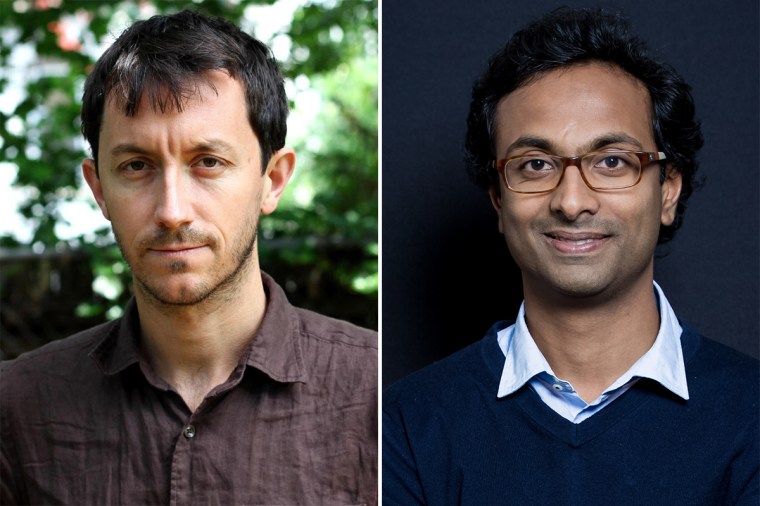Durban, June 17, 2022 — The Commonwealth Secretariat should ensure that all journalists can freely cover the upcoming summit in Rwanda, and should not allow the press accreditation process to be used as a political tool, the Committee to Protect Journalists said Friday.
The Commonwealth Heads of Government Meeting, which brings together the leaders of Commonwealth nations for meetings every two years, is scheduled to be held in Rwanda from June 20 to 25. Foreign correspondents’ access to cover the event is controlled by the Commonwealth Secretariat, while the Rwandan government is responsible for the accreditation of domestic media, according to an email from the Commonwealth’s press office reviewed by CPJ.
On Wednesday, June 15, the Commonwealth Secretariat informed Benedict Moran, a Canadian journalist who has reported on Rwandan President Paul Kagame’s alleged involvement in war crimes and Kagame and the ruling Rwanda Patriotic Front’s alleged disinformation campaigns targeting government critics, that his application to cover the summit had been denied, according to news reports and Moran, who spoke to CPJ via messaging app and email.
The secretariat also denied the application of Anjan Sundaram, the author of the book Bad News: Last Journalists in a Dictatorship about the destruction of free speech in Rwanda, who had applied to cover the summit as part of Moran’s production company, Sundaram told CPJ via email.
Separately, several other foreign correspondents told CPJ that, despite filing their applications for accreditations before the May 23 deadline, they had still not received permission to cover the events as of Friday, June 17. Those correspondents spoke to CPJ on the condition of anonymity, citing fear that speaking out could jeopardize their accreditations’ last-minute approval.
“The Commonwealth Secretariat should reverse its decision to deny accreditation to journalists Benedict Moran and Anjan Sundaram to cover next week’s Commonwealth Heads of Government Meeting in Rwanda, and should ensure that all journalists who wish to cover the event are given unfettered access,” said Angela Quintal, CPJ’s Africa program coordinator. “It is also very concerning that several journalists who applied for accreditations have yet to receive a reply at this late stage. The secretariat must inform them immediately.”
The Commonwealth Secretariat told Moran that his and Sundaram’s applications had been denied because they were not working for “recognized media outlets,” Moran said, adding that he had previously been granted access to report from Rwanda for his production company.
Sundaram called that explanation “absurd,” noting that he had written for The New York Times, The Guardian, Politico, The Observer, and Foreign Policy. Moran has contributed to PBS Newshour, The New Yorker, The Mail and Guardian, Al-Jazeera, National Geographic, and other outlets, he said.
In an emailed statement to CPJ, a Commonwealth spokesperson said that “suggestions that there is any attempt to limit media access to [the summit] don’t hold up to scrutiny.”
The statement said that “over 700 journalists are being accredited” to cover the summit, but did not respond to CPJ’s questions asking for a breakdown of the number of accreditations that had been approved, denied, and were pending.
“It’s disappointing, but not surprising, that my application to cover the forum was rejected. In Rwanda, any critical voices are locked away or scared into silence,” Moran told CPJ. “So many Rwandans have fled, or died, trying to uphold the values upheld in the Commonwealth Charter, not only from past Rwandan governments, but from its current one.”
“It is a travesty that Commonwealth heads of state will hear only good news, and be able to express themselves freely in Kigali, when Rwandan journalists, academics, musicians and politicians have been killed for exercising the same basic right,” Sundaram said.
Rwandan government spokesman Yolande Makolo told CPJ via messaging app that the government only accredits domestic journalists, and said a list of journalists approved for accreditation by the secretariat and provided to the Rwandan government did not include Moran or Sundaram’s names.
Asked whether the Rwandan government had the right to veto a name on the list, Makolo said, “Not to my knowledge.”
CPJ joined 23 other civil society organizations on June 10 in calling on Commonwealth leaders to urge Rwanda to respect human rights and allow the media to freely cover the summit.
CPJ’s most recent prison census, a snapshot of journalists detained as of December 1, 2021, showed that Rwanda was one of the worst jailers of journalists in Africa, with at least seven behind bars.
[Editors’ note: This article has been changed to correct the spelling of Anjan Sundaram’s name.]
